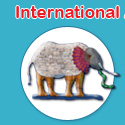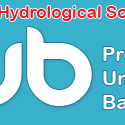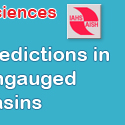








|
|
PUB's scientific research is categorised into eight Themes;
Theme 1: Catchment Classification (Details...)
Objective:
Develop new approaches for hydrological interpretation from existing data archives: data rescue and re-analysis, basin inter-comparisons and global hydrology
Description:
Promote improved understanding of regional characteristic hydrological cycle response and prediction using inter-comparisons and reanalysis of observations from single-basin studies, International Hydrological Decade (IHD) basins, and national research basin networks.
Collect and analyze existing data on hydrologic responses in different biomes or hydro-climatic regions (eg, humid tropical, mid-latitude temperate, high latitude, sub-alpine/alpine, arid, etc), and interpret the observed differences (within and between different biomes), in terms of underlying climate, soil, vegetation, topography, and land-use interactions.
Theme 1 Leader (4th Biennium):
Ross Woods, NZ National Institute of Water & Atmospheric Research
Theme 2: Conceptualisation of Process Heterogeneity (Details...)
Objective:
Advancing approaches and theories of understanding, integrating and conceptualising process heterogeneity at different spatial and temporal scales, moving beyond descriptive conceptualisation
Description:
Within Theme 2 we seek to improve our understanding of process heterogeneity and approaches to conceptualise the structure, function and behaviour of catchment systems in different climatic and geomorphic provinces. This includes methodologies of:
- Multi-scale catchment monitoring
- Encapsulating spatial scale issues
- Describing non-linearities and emergence of processes
- Developing and establishing geographically and climatically transferable approaches of conceptualisation
The space-time variability of dominant hydrological processes and interactions between vegetation, soils and substrate, snow/ice, atmosphere and riverine ecosystems will be investigated and characterised through detailed process studies. Conceptualisation approaches ranging from simple qualitative conceptual diagrams and mapping tools to increasingly complex numerical approaches in physical models will be considered. Natural isotopic and geochemical tracers provide insight into the hydrological functioning of larger catchments and are particularly useful in upscaling studies as their dynamics in natural waters reflect the integration of process interactions at fine spatial and temporal scales. In this way, tracers offer insight into the 'averaging' which characterises the emergent functioning of hydrological systems at larger spatial and temporal scales and will play an important role within Theme 2 investigations.
Theme 2 Leader (4th Biennium):
D�rthe Tetzlaff, University of Aberdeen
Co-Leaders:
Sean Carey, Carleton University, Ottawa, Canada
Hjalmar Laudon, SLU Umea, Sweden
Kevin McGuire, Virginia Polytechnic Institute & State University, USA
Theme 3: Uncertainty Analyses and Model Diagnostics (Details...)
Objective:
Advance learning from the application of existing models, through uncertainty analyses and model diagnostics
Description:
From standard model structures towards model structure improvement, evaluation through multi-criteria model identification and new top-down modeling approaches. These will include methodologies for improved parameter estimation, the use of soft data, pedo-transfer functions, tracers and measurement of internal state variables. Also included will be model inter-comparison studies with a focus on diagnostic studies and on relating model performance to understanding of climate-soil-vegetation interactions, and a particular focus on learning from key signatures of basin response rather than mere curve fitting. Model inter-comparisons will lead to a harmonization of models into a few generic types for basins globally stratified by hydro-climatology (eg, humid tropical, mid-latitude temperate, high latitude, sub-alpine/alpine, arid, etc).
Theme 3 Leader (4th Biennium):
Thorsten Wagener, Pennsylvania State University
Co-Leaders:
Jim Freer, University of Bristol
Bettina Schaefli, École Polytechnique Fédérale de Lausanne
Theme 4: New Approaches to Data-Collection (Details...)
Objective:
Use of new data collection approaches for large-scale process understanding, model development and improved predictions
Description:
This Theme aims to
- Extend the range and scale of observations by employing a variety of new techniques, ranging from standard gauged measures to remotely-sensed hydrological surrogates for large-scale process understanding and improved model predictions.
- Expand observational availability beyond that normally considered in national and international operational hydrology monitoring networks by including hydrological flux and state data (precipitation, evaporation, soil moisture, storage levels in surface and groundwater, vegetation cover, snow cover, ice extent, saturation area dynamics, floodplain inundation, water levels, gravity variations, etc.) obtained through satellite remote sensing.
- Improve mathematical techniques to characterize such data in an efficient manner, and to downscale them to the basin or process scale to satisfy the requirements of hydrological models.
- Develop innovative techniques to
- explore subsurface properties and their uncertainties (geo-radar, tomographic methods, isotope tracers, MMR methods to measure fluxes),
- measure fluxes (evaporation, rainfall and runoff) and their uncertainties (remote sensing, coupling with atmospheric models)
- monitor state variables (storage variations in groundwater, soil moisture, surface water and snow pack) and their uncertainties (remote sensing, radar altimetry, gravity observations from space and on land, advanced TDR methods), and ecological soil moisture indices, that give information on the soil moisture regime based on indicator plants, soil types and topography.
- Improve model predictions by combining with remotely sensed hydrological or surrogate data through the use of four-dimensional data assimilation methods.
Theme 4 Leader (4th Biennium):
Danny Marks, US Department of Agriculture
Theme 5: New Hydrological Theory (Details...)
Objective:
Develop new hydrological theories based on scaling, multi-scaling and complex, systems approaches, nonlinear pattern dynamics and ecohydrological relationships
Description:
Move from standard gauged basins approaches to a new catchment theory for addressing how multi-scale heterogeneities, nonlinear dynamics and feedback mechanisms affect the predictability of hydrological dynamics at multiple scales in different biomes. Work towards a thorough understanding how the dominating hydrological processes and patterns at multiple scales are determined by nonlinear climate-soil-vegetation interactions and self-organization in different hydro-climates and ecosystems. These new theories might employ concepts and methods from various disciplines such as the theories of multi-scaling, complex systems, self-organization, pattern dynamics as well as ecology and eco-hydrology for developing parsimonious process descriptions within a novel framework for predictive hydrological modelling than can accommodate these novel concepts
Theme 5 Leader (4th Biennium):
Alexander Gelfan, Water Problems Institute, Russian Academy of Science
Theme 6: New Approaches to Modelling (Details...)
Objective:
Develop new, multi-scale, spatially distributed modelling approaches with a focus on model falsification over a wide range of basin scales
Description:
Improvement of approaches to represent multi-scale variability of hydrological processes, and their dependence on the heterogeneity of climatic and catchment properties, within an advanced framework of mathematical modeling. These new approaches should address the inherent multi-scale heterogeneity, nonlinearity, complex patterns and scaling phenomena characteristic of catchment hydrology as well as incorporate relevant new process/pathway descriptions and data sources, aggregated to appropriate basin scales, for hydrological prediction. Derivation of a new set of balance equations at the basin scale, development of closure schemes to parameterize the effects of sub-grid variability, with the possibility of remote monitoring of state variables such as approaches (field experiments, remote sensing, tracers and surrogate measurements) to observe previously unobserved space-time variability of hydrological processes, unifying the observations of hydrologic processes at various scales.
Theme 6 Leader (4th Biennium):
Hubert Savenije, Delft University of Technology
Theme 7: International Working Groups (Details...)
Objective:
Form PUB national/regional/multi-national working groups and PUB technology transfer
Description:
This Theme provides a vehicle for cohesion between the National, Regional and Multinational Working Groups, encouraging co-ordination between their activities, and helping them to avoid becoming isolated internationally.
It also provides a mechanism by which (M)NWGs will receive guidelines from the SSG, and provides a pathway from an (M)NWG to the SSG for dealing with a wide range of issues, eg the collation of details of country-by-country progress during the PUB Decade.
The Theme also helps to define and maximise the benefit of efforts by the PUB community in countries not currently engaged in national-level PUB science and application.
However, note that it is fully recognised that different countries have different administrative structures and traditions for undertaking and coordinating hydrological and water resources management research, and in many cases, different key PUB issues they may wish to prioritize. Exactly how each country contributes to PUB is, therefore, a matter for that country to decide. Theme 7 has no power to impose changes in the national arrangements for PUB decided upon by a particular country, nor does it wish to impose such changes or be totally prescriptive in such matters.
Theme 7 Leader (4th Biennium):
Denis Hughes, Rhodes University, South Africa
Theme 8: Integration and Demonstration Projects (Details...)
The great majority of the movement's activities have been conducted within the Working Groups, described here. These include International Thematic Working Groups to deal with specific PUB issues, National / Regional Working Groups to promote, steer, co-ordinate and report on PUB business related to a given country or region, and Working Groups established to span interests common to two or more Themes. PUB has additionally encouraged the establishment of Individual Projects (IPs) as vehicles within which to focus concerted multi-discplinary effort on a specific scientific topic or geographic area (eg WG16, IP3).
PUB has also sought to open channels of communication and interaction with other established research programmes which have overlapping interests, such as Hydrology for the Environment, Life and Policy (HELP) and Flow Regimes from International and Experimental Data (FRIEND).
| | |



